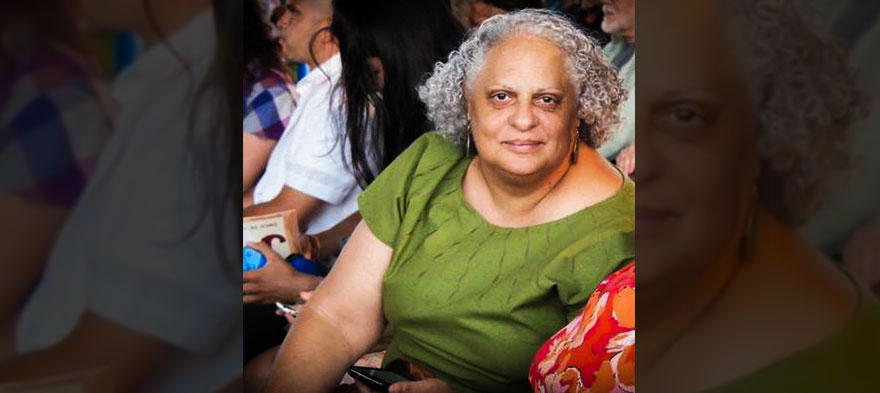
Apr 6, 2018 12:00:00 AM
 For Scott-Boria, joining the Panthers meant the opportunity to prove her Blackness. “I’m here in black pants and a black shirt. I had a black beret. I had to compensate for being so light-skinned. I felt like I had to prove myself. Because I was so light-skinned, my Afro needed to be bigger, and I needed to wear those combat boots.” She sold newspapers and worked in the children’s
breakfast program, which provided the inspiration for free breakfast in public schools. “I would put my daughter in a stroller and go down Madison Street to the Better Boys Foundation.” About
200 children a day came to eat bacon, eggs, toast and grits. Scott-Boria sold papers to their parents, who could get breakfast, too. “It was a place that fed their minds as well as their bellies. A lot of political education took place.” Scott-Boria’s own political education took place there as well as at college. “We didn’t go anywhere without [Mao Tse-Tung’s] Little Red Book. We were very literate in the sense that we needed to understand political movements, the communist movement.” She also learned about liberation movements in Angola and Mozambique, which later led to her involvement in the struggle for Black freedom in South Africa.
For Scott-Boria, joining the Panthers meant the opportunity to prove her Blackness. “I’m here in black pants and a black shirt. I had a black beret. I had to compensate for being so light-skinned. I felt like I had to prove myself. Because I was so light-skinned, my Afro needed to be bigger, and I needed to wear those combat boots.” She sold newspapers and worked in the children’s
breakfast program, which provided the inspiration for free breakfast in public schools. “I would put my daughter in a stroller and go down Madison Street to the Better Boys Foundation.” About
200 children a day came to eat bacon, eggs, toast and grits. Scott-Boria sold papers to their parents, who could get breakfast, too. “It was a place that fed their minds as well as their bellies. A lot of political education took place.” Scott-Boria’s own political education took place there as well as at college. “We didn’t go anywhere without [Mao Tse-Tung’s] Little Red Book. We were very literate in the sense that we needed to understand political movements, the communist movement.” She also learned about liberation movements in Angola and Mozambique, which later led to her involvement in the struggle for Black freedom in South Africa.
Maureen Kelleher is Editorial Director at Future Ed. She was formerly Editorial Partner at Ed Post and is a veteran education reporter, a former high school English teacher, and also the proud mom of an elementary student in Chicago Public Schools. Her work has been published across the education world, from Education Week to the Center for American Progress. Between 1998 and 2006 she was an associate editor at Catalyst Chicago, the go-to magazine covering Chicago’s public schools. There, her reporting won awards from the Annie E. Casey Foundation, the International Reading Association and the Society for Professional Journalists.
Few issues in education spark more tension and debate than standardized testing. Are they a tool for equity or a burden on students? A necessary check on school systems or a flawed measure of...
Charter schools are public schools with a purpose. Operating independently from traditional school districts, they're tuition-free, open to all students, and publicly funded—but with more flexibility...
Despite the benefits of a diverse teaching force, prospective teachers of color fall out of our leaky preparation pipeline at every stage: preparation, hiring, induction, and retention. Here’s what...
Ed Post is the flagship website platform of brightbeam, a 501(c3) network of education activists and influencers demanding a better education and a brighter future for every child.
© 2020-2025 brightbeam. All rights reserved.
Leave a Comment